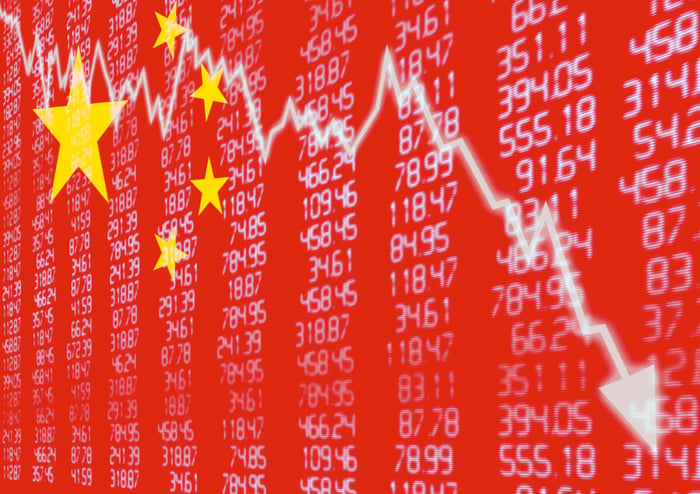What happened
Monday was a volatile day for the stock markets, but some stocks from across different sectors were hammered black and blue and plunged sharply as the day progressed. For example, here's how some names were faring as of 2:20 p.m. ET:
- Li Auto (LI -1.68%): Down 20.3%
- Tencent Music Entertainment (TME 1.20%): Down 8.7%.
- Hutchmed (HCM 3.15%): Down 11.6%.
There's one common link between each of these stocks: China. And there's one hot stock that also took a hit because of China but for a different reason: Tesla (TSLA 4.96%), shares of which traded 4% lower as of 2:20 p.m. ET Monday.
So what
The past few months have been trying times for investors in Chinese stocks. It started with the China Evergrande Group fiasco and widespread regulatory crackdown on tech companies. Now, Chinese stocks listed in the U.S. could be on the verge of delisting.

Image source: Getty Images.
Shares of foreign companies listed in the U.S. plunged last year after the U.S. Securities and Exchange Commission (SEC) tightened scrutiny and allowed the delisting of stocks of companies that failed to allow U.S. regulators to audit their books under the Holding Foreign Companies Accountable Act (HFCAA) law. Although the rule would apply to all foreign stocks, the threat to Chinese stocks is the biggest, given Beijing's disregard of disclosure rules and resistance to an audit in the U.S., so far.
The SEC just stoked fears by identifying and warning five companies about potential delisting from the U.S. stock exchanges for failure to comply with the HFCAA law. Biopharmaceutical company Hutchmed is on the list, and these companies have time until March 29 to submit a response to the SEC.
It's obvious by now why Hutchmed stock tanked on Monday. At the same time, it's also easy to understand why other Chinese stocks slumped, as well. This is the SEC's first such list, and it has stated it will continue to add names. Investors in Chinese stocks, of course, are worried their companies could be next in the line of the SEC's fire.
Investors in Li Auto have another reason to fear: lockdowns in China amid rising coronavirus cases. Lockdowns can curb consumer spending and slow down the economy. Therefore, it will not only make it costlier to manufacture electric vehicles (EVs) but also hit demand for EVs.
In fact, a slowdown is a threat to not just local EV makers like Li Auto, but also foreign companies that have a lot at stake in China, like Tesla. Tesla's sales in China, in fact, are booming. The Model Y was the highest-selling premium SUV in China in February, with retail sales jumping nearly 300% year over year. In terms of overall new EV sales in China, Tesla was second only to BYD last month.
Now what
The threat of delisting is real for foreign stocks, but they also have the option to list on other stock exchanges to offer their shareholders an alternative to trade shares. Popular Chinese EV-company, Nio (NIO -0.48%), for example, started to prepare for a secondary listing soon after the HFCAA threat emerged last year and finally debuted its shares on the Hong Kong stock exchange on March 10. Li Auto, for that matter, is already listed in Hong Kong, but investors in the U.S. may continue to dump shares out of fear.
Investors in EV-leader Tesla, on the other hand, might be better off. Sure, any slowdown in China could hit Tesla's sales, but it could be only a temporary blip in the EV-maker's otherwise strong growth story.





